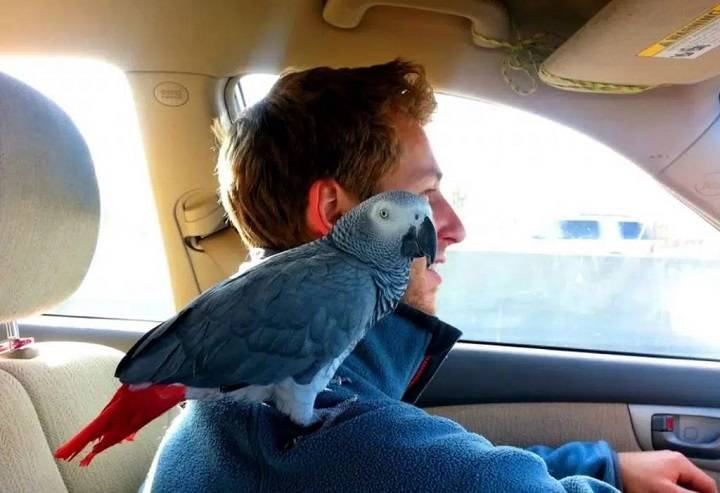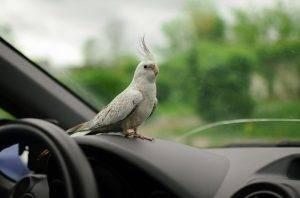Traveling with your feathered companions by car can be an exciting adventure for both you and your birds. Whether you’re going on a road trip, relocating, or simply taking your avian friends for a vet visit, ensuring their safety and comfort is paramount. In this comprehensive guide, we will explore the top 10 tips for safely traveling with birds by car, addressing everything from preparation to in-car care, so you can enjoy a worry-free journey with your beloved birds.
Prioritize Safety with a Secure Carrier

The first step in traveling with birds by car is to invest in a safe and secure carrier specifically designed for avian transport. Ensure that the carrier is well-ventilated, escape-proof, and appropriately sized to prevent injury during transit. Test the carrier’s locks and latches to guarantee your bird cannot accidentally escape during the journey.
Gradual Acclimation to the Carrier
Help your birds become accustomed to their carrier by introducing it gradually in the days or weeks leading up to the trip. Place their favorite toys and treats inside to create a positive association with the carrier. This will reduce stress when it’s time to hit the road.
Prepare an Emergency Kit
As a responsible bird owner, it’s essential to prepare an emergency kit for your feathered friends. Include essentials such as a first-aid kit, bird-safe disinfectant, a spare carrier, food, and water. Having these items readily available can be a lifesaver in unexpected situations.
Secure the Carrier in the Car
When traveling with birds by car, secure the carrier to prevent it from shifting or falling during sudden stops or turns. Use seat belts or straps designed for pet carriers to keep the carrier stable and your birds safe.
Optimal Temperature Control
Birds are sensitive to temperature fluctuations. Ensure your car’s climate control is set to provide a comfortable temperature range for your birds. Avoid exposing them to extreme heat or cold, as it can be detrimental to their health.
Regular Breaks for Hydration and Nutrition
Plan for regular stops during your journey to offer your birds opportunities for hydration and nutrition. Bring a water dispenser designed for birds and offer small portions of their regular food. Keep an eye on their behavior to ensure they are eating and drinking adequately.
Minimize Noise and Distractions
Birds are easily stressed by loud noises and distractions. Keep the interior of the car quiet by reducing noise from the radio or conversations. Additionally, use window shades to minimize visual distractions, which can help your birds feel more at ease.
Avoid Airborne Hazards
Keep car windows closed while traveling to prevent airborne hazards such as drafts, dust, and pollutants from entering the car. These factors can irritate your birds’ respiratory systems and cause distress.
Maintain a Calm Demeanor
Your birds can pick up on your emotions, so maintain a calm and reassuring demeanor during the journey. Talk to them softly and offer words of comfort to reduce their anxiety.
Traveling with Birds by Car
Throughout the trip, perform regular check-ins and observations of your birds. Ensure they are comfortable, breathing normally, and not exhibiting signs of distress. Be prepared to make additional stops or adjustments if necessary.
Frequently Asked Questions (FAQs)
How do I choose the right carrier for traveling with birds by car?
When selecting a carrier, consider the size of your birds, ventilation, security features, and ease of cleaning. Opt for carriers specifically designed for bird transport, as they are equipped with the necessary safety features.
Can I let my birds out of their carriers while driving?
It is not recommended to let your birds out of their carriers while the car is in motion. This can be dangerous and distracting. Keep them securely inside their carriers throughout the journey.
How can I keep my birds entertained during a long car ride?
To keep your birds entertained, provide toys and treats inside their carriers. Familiar items can help reduce stress and keep them occupied during the journey.
What should I do if my birds become agitated or stressed during the trip?
If your birds show signs of agitation or stress, pull over at a safe location and offer reassurance. Speak to them softly and check their immediate environment for any potential stressors.
Related Post:
Deciphering the Ideal Space Requirements for Ducks
Unveiling the Mysterious Egg-Laying Habits of Ducks
Exploring the Essential Role of Duck Grit in Avian Health
Traveling with birds by car can be a rewarding experience when done safely and thoughtfully. By prioritizing their safety with a secure carrier, gradual acclimation, and an emergency kit, you can ensure a smooth journey. Pay attention to temperature control, offer regular breaks for hydration and nutrition, and minimize noise and distractions to keep your birds comfortable. Remember to maintain a calm demeanor and perform regular check-ins to address any concerns promptly. With these top 10 tips and a focus on your birds’ well-being, you can enjoy the company of your feathered friends on the road while keeping them safe and content.



